Woman Refuses To Bring Her Newborn Baby To Her In-Laws' House Because Of Their Dogs
The impending arrival of a newborn is always an exciting time, but it can also be a source of stress and tension. This is particularly true when in-laws are involved, and this Reddit user is experiencing this firsthand, with in-laws who are both controlling and unwilling to drive to the city where their son and daughter-in-law live.
OP explains that her in-laws are very controlling and that she does not have a good relationship with them. This situation is exacerbated by the fact that the in-laws never want to visit the city where the couple lives, instead insisting that they come to them.
The father-in-law is a pilot and often misses important events, leading to his wife whining and complaining that she never sees her son. This situation has led to many conflicts, with OP missing out on Christmas morning and the in-laws demanding to be present in the delivery room.
OP has put her foot down and said no to the latter, but this has only led to more conflict. The in-laws are now insisting that the couple bring the newborn to them once he is born.
This is a problem for several reasons. Firstly, the in-laws have three large dogs that jump and scratch when people sit down. They have no control over the dogs, and OP is concerned that her newborn could be hurt if they are jumped on or nibbled at, especially since her husband has previously had to pry one of the dogs off their firstborn son.
OP has suggested that the in-laws come to visit them for a change, but they always refuse. This has left her in a difficult position.
She doesn't want to upset her in-laws, but she also doesn't want to put her newborn at risk. She is wondering if she is in the wrong for standing her ground and not giving in to her in-laws' demands.
So, OP decided to share her story on Reddit and see what advice people on the internet had for her. Be sure to scroll down and see what they had to say.
OP's in-laws live an hour away but they never want to drive to where OP lives with her husband
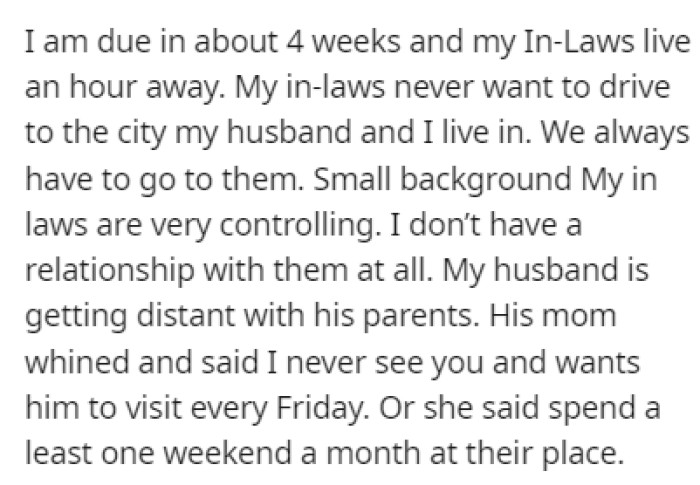
OP's father-in-law works as a pilot and he always misses birthdays and holidays, so he gets upset at OP's husband if he doesn't visit them for holidays
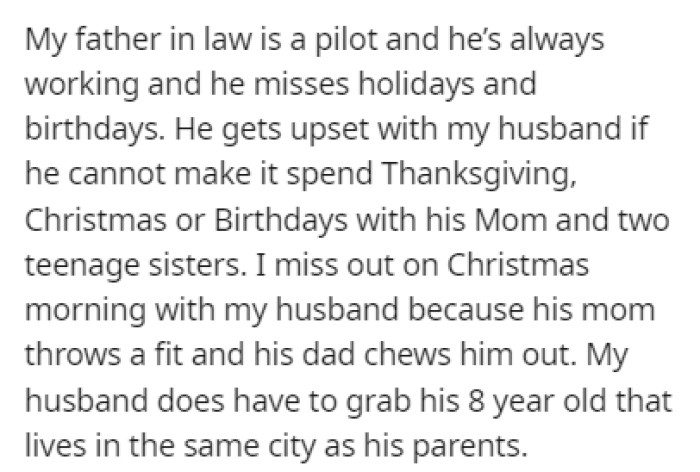
The MIL wanted to be in the delivery room when OP gave birth, but OP said no
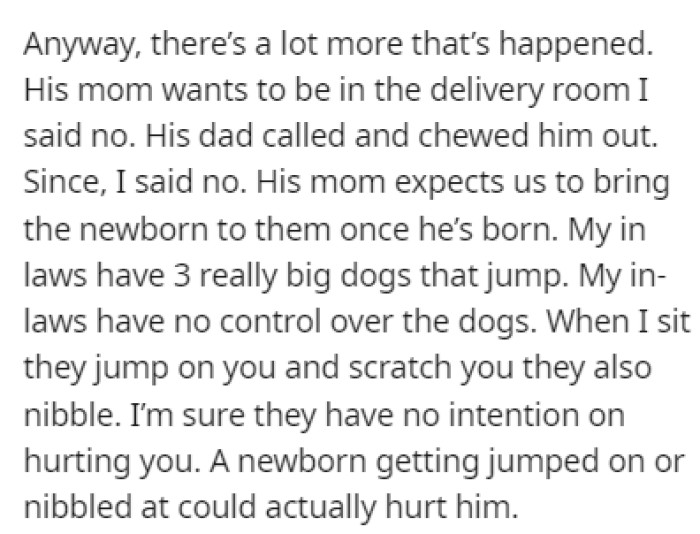
Parental Fears and Protective Instincts
Parental instincts often drive decisions about child safety, particularly when it comes to interactions with pets. Research from the Journal of Child Psychology indicates that new parents frequently experience heightened anxiety regarding their child's safety, especially in unfamiliar environments. This protective instinct can lead to significant emotional conflict when faced with potential risks, as illustrated by this mother's reluctance to expose her newborn to her in-laws' dogs.
As a consolation, the MIL wanted them to visit her as soon as the baby is born, but OP is afraid of the dogs at their house
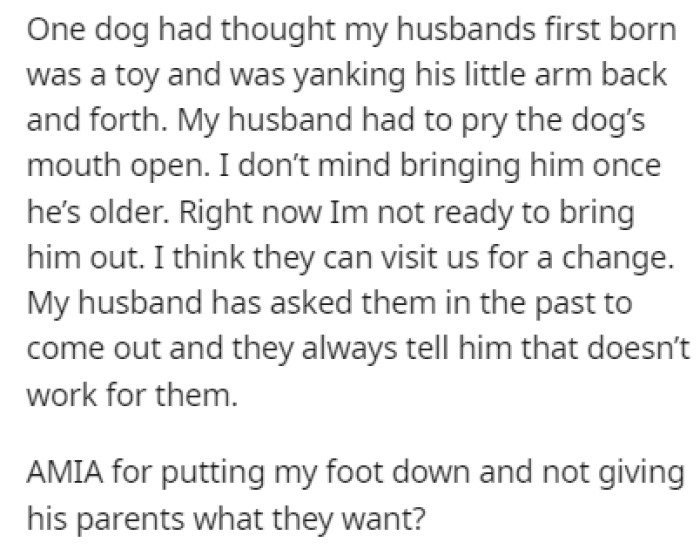
Untrained dogs are dangerous
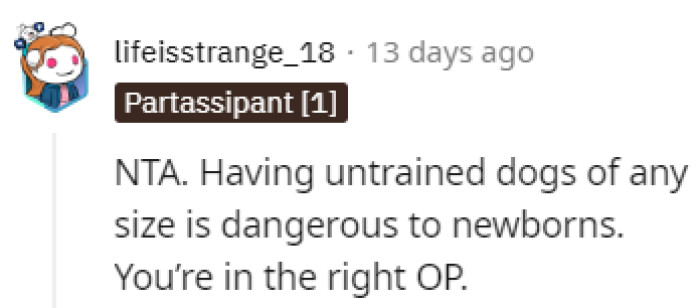
Legitimate concerns
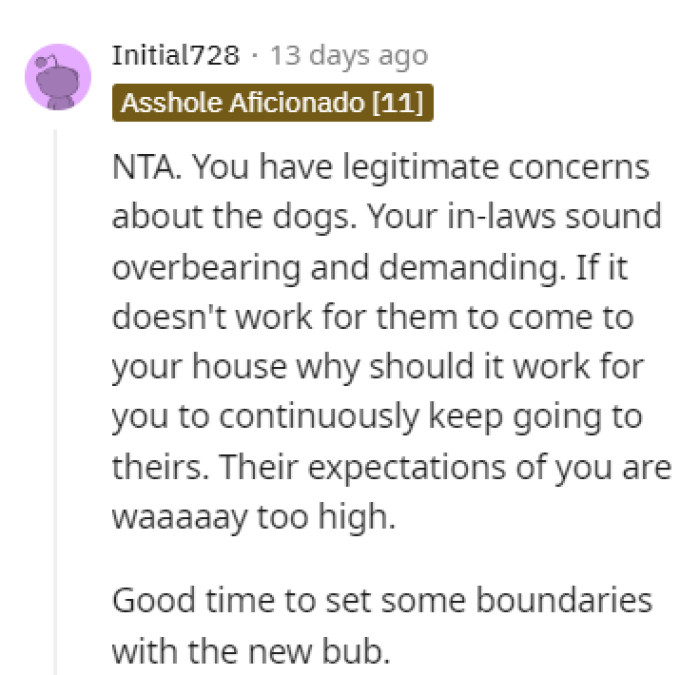
The fear of potential harm from pets, especially large dogs, can reflect a broader concern about control and responsibility. Studies show that parents often seek to mitigate perceived threats to their children, which can lead to overprotective behaviors. This tendency can create tensions within families, especially when grandparents may not fully understand the rationale behind such caution.
Keep it down
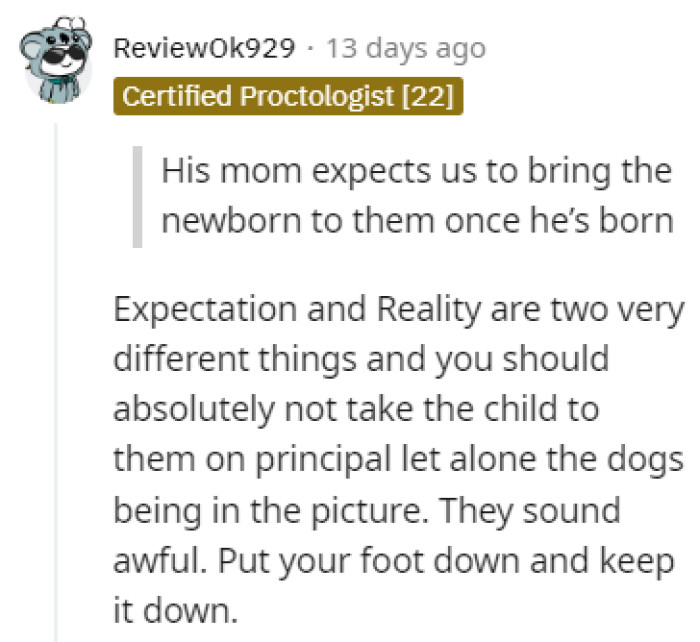
Traveling with a newborn is not a good idea
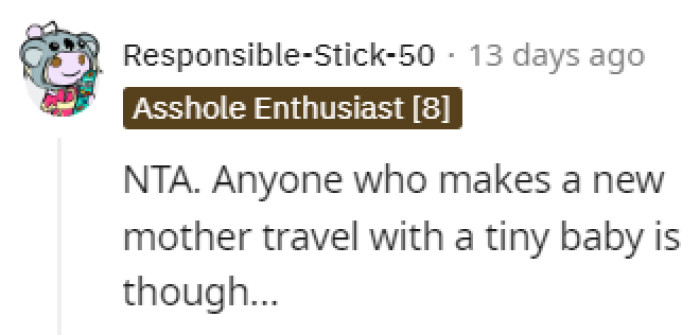
It'll work for them if necessary
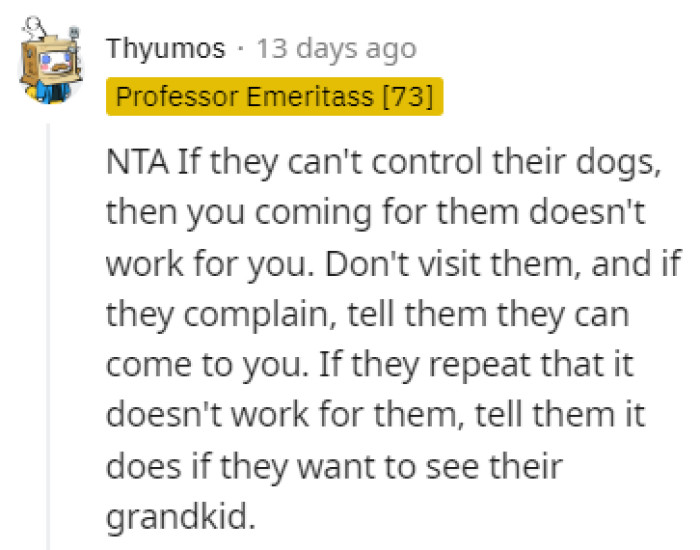
Balancing Family Expectations and Child Safety
To navigate these conflicts, open communication about concerns is vital. Discussing the reasoning behind the decision not to bring the baby around dogs can foster understanding and empathy within the family. Research indicates that when family members engage in constructive conversations about differing perspectives, it leads to improved relationships and mutual respect.
The choice is theirs

In the end, the most important thing is the safety and well-being of the newborn. If the user and her husband feel that it's too risky to bring the baby to the in-laws' home, then they should not do so.
It may be difficult, but it's important to stand firm and not give in to pressure from family members.
Additionally, it may be beneficial to establish guidelines for visits that prioritize child safety while allowing for family bonding. The Journal of Family Psychology emphasizes the importance of creating shared understandings that accommodate everyone’s needs. By fostering an environment of collaboration, families can create a safer space for both children and pets.
Psychological Analysis
This situation reflects common parental anxieties surrounding child safety in the presence of pets. It's important to recognize that these fears often arise from a place of love and protectiveness. Encouraging open conversations about safety concerns can help bridge gaps in understanding and foster family unity.
Analysis generated by AI
Analysis & Alternative Approaches
In conclusion, balancing parental instincts with family dynamics requires thoughtful communication and understanding. Research supports the importance of addressing safety concerns while fostering family connections. By prioritizing open dialogues about expectations, families can navigate these complex issues more effectively.



